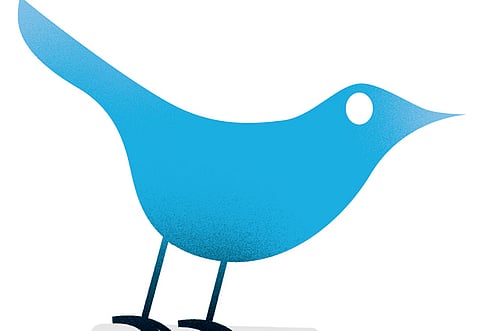Why #Twitter's bigger than Facebook
Twitter is objective, curious, honest and communicative - all values not inspired by Facebook

I remember very clearly where I was when I first heard of Twitter; it was brunch sometime before summer last year. Someone was ecstatic about how it was great.
"It's great, all you do is update your status" she said. "You follow people who you're interested in, I'm following Ashton Kutcher!" she added. I told her she was effectively following his publicist and that was that.
A few weeks later and during an insomniac night, like this one, I joined Twitter primarily because I liked the verb: tweet. I wanted to tweet. Initially it appealed to me because I was always the over summarising guy in class. In fact I still struggle with producing 800 words every week for this very column. So I liked the limitation: 140 characters. Go!
Ok, so that got boring very quickly after which I launched into a tirade of why Twitter was a scam and how I could just express my thoughts through Facebook's status update feature for as long or as short as I wanted.
Why would I want to use another online programme, keep a user name and a password for it, log on, etc? It was a hassle. I mean I barely check my small world account (yeah, remember when that was all the rage and getting invited was a privilege you'd casually boast about at a dinner party? So much for manufactured exclusivity.)
So anyway, I blasted Twitter for pretty much most of summer and stuck to my Facebook account. Then I started seeing weird letters and signs in my friends' updates (yes on Facebook!).
Things like ‘RT' and ‘@' and ‘#' signs. Was this some kind of yuppie way by some Facebookers to become Tweeters too? Yes it was; they had basically linked their tweets to simultaneously appear on Facebook. Great, now there is no escape I thought! So I asked what those signs meant. Ok so I'm going to assume that this is useful information to you if it's not then pass it off as filler to that 800 word finish line: RT stands for Re-Tweet i.e. quoting somebody else's post, inserting @ before a user's name tags them to the tweet just in case they don't follow you (I know, get used to it, not everyone will!) and inserting # before a word makes the post searchable by non followers. Big deal, right?
You bet. So over the following few months, I would learn how to communicate with people from around the world based on a word they were interested in which I had #ed or the other way around. Ladies and gentlemen let me meticulously spend the next 49 words explaining why this will do nothing short of revolutionise the way we communicate.
I will do so by — you guessed it — retweeting what I posted about this on Twitter on December 26th - "RT @algergawi votes #Twitter's #hashtag the most incredible connector of similarly minded ppl. The world has changed in a way even #Facebook couldn't C." and "RT @algergawi the #hashtag of #twitter has made strangers realise they have similar fears & aspirations & made them wanna communicate & discuss them".
Here is the best part. When you join Twitter your Facebook privacy paranoia is still fresh in your mind. So the first thing you do is to check the ‘Protect my tweets' box. This effectively requires all those who wish to follow you request your blessing.
Filtered community
Eventually though you realise that this is ridiculous because the whole point of Twitter is to be objective, curious, honest and communicative; all values that are not inspired by Facebook.
Facebook, with all its newly engineered privacy loopholes, is effectively a filtered community. Most people add only those who they know, or knew, in real life. You will rarely add people you do not know on Facebook. This is considered good judgment, after all, who knows who those people are and what they will do with the information you post?
Today Facebook has become a strange mix of frivolous online games, ‘see how cool my life is' pictures, invitations to groups you don't care for and events taking place 3000 miles away from where you live.
Ok so you will block games, only post profile pictures and accept invitations to groups and events which you are genuinely interested in. In the end however, you realise that you spend more time filtering data than actually absorbing any. Twitter doesn't do that. You either follow #iamdiddy or #theeconomist. You either follow your buddy from highschool or you don't.
To imagine that Facebook offered to buy Twitter in 2008 (mostly in Facebook stock!); thank God they turned it down.
Two extraordinary tweexamples; April 2008: James Buck, a Berkeley grad student, is arrested in Egypt while covering an anti-government protest. Yet is able to tweet one post word just as he is taken away by the authorities: Arrested.
According to Ben Parr's Mashable post "This one update sparked his friends and followers into action, eventually leading to his university hiring a lawyer on his behalf and his release a day later." Let me repeat that: a day later. And that's in Egypt.
May 2008: China is hit by an earthquake with a magnitude of 7.8. @dtan is reportedly one of many on-location tweeters who broke the story even before the United States Geological Survey.
It's simple. The world is now finally listening; if @you have something to say, #tweet it.
Mishaal Al Gergawi is an Emirati commentator on socio-economic and cultural affairs in the UAE.


